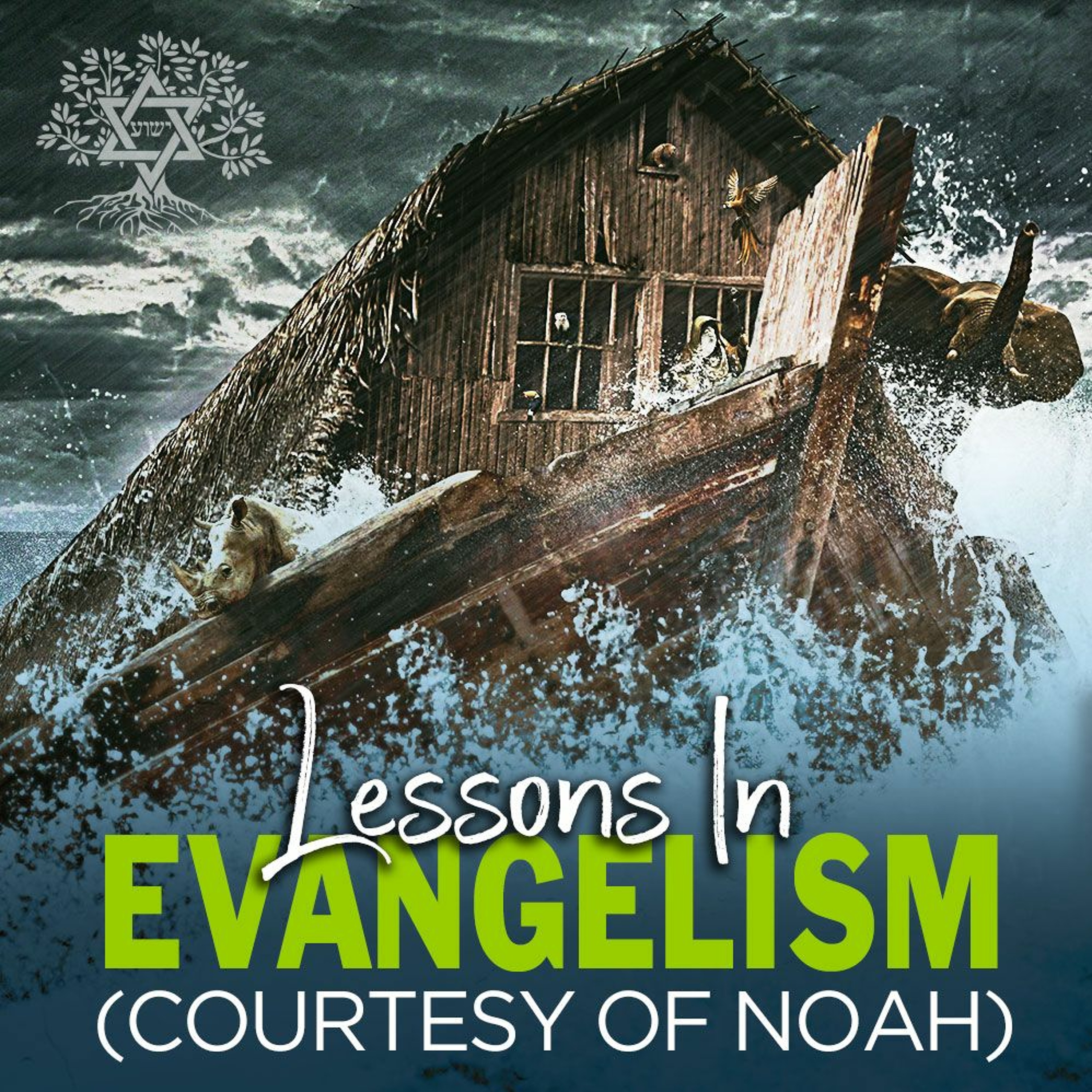Episode Transcript
[00:00:05] Speaker A: Clean your room?
Do your homework?
Did you feed the dog?
Have you done any of the things that I asked you to do? What are you going to do with your life?
I don't care what your friends are doing. When you live under this roof, you. You will do it my way.
If any of that sounded familiar, congratulations. You've just heard the universal soundtrack of growing up.
Whether you have children or not, you were once a kid, and which means you probably had parents or guardians who likely had an overwhelming obsession to turn you into a. A responsible adult.
I remember sitting at our kitchen table many, many times, usually as a teenager, what would be called a character building discussion really meant I was in very bad trouble again.
My dad would lean forward with that look and say, damien, our job is not to make you happy.
We are not here to be your friends.
It is our job to make you responsible.
Sorry, I'm still working on it.
At 16, as I continued down my path of pursuing fun at all cost, it seemed that my parents were committed to another job, which was just to make my life absolutely as miserable as possible and take all of my fun away from me. Now, having raised my own children many times, I find those exact words had come out of my mouth, as if my dad had implanted some type of time lapse capsule in my brain that as soon as I became a parent to teenage kids, it was like, you am not here to be your friend.
Wait, my dad said that to me? I said I'd never say that.
Looking back on those years, I can see how it passes down from my parents to me, to my own kids. I still have conversations with my own adult children about this idea, this inheritance that continues its journey through all of us.
Please be responsible.
And it makes me wonder of all the virtues that parents could instill in their children and set above all things, virtue, kindness, creativity, ambition, faith. Why does responsibility get the top billing?
What makes this particular trait so universally important that parents across the cultures, generations and eons lose sleep over whether or not their children will end up responsible?
To answer that, we kind of need to ask what a parent's job is.
What is a parent's job? Is it to love unconditionally?
To provide food and shelter? And an embarrassing number of stupid stories? When you bring a girl over that you like to take her out on a date, is it to teach values? To prepare children for independence? To teach kids to love God, to worship? All of those things are amazing. They're all great. And if you ask 10 parents, you'll get 15 different answers. But all of the answers generally fall under the umbrella of, I want to raise a good person.
I want to raise. I want my child to become a responsible adult. And even if you don't have children, you had parents. That was probably their intention for you as well. It's universal. But what does responsible actually mean?
Why is it so important that we today, I'll take away your screen privileges.
We have charts with golden stars and chores and all the things to instill this single quality.
A better question might be, what does any of this have to do with us? We are not, most of us, anyway, children. Some of you are in here, and I'm glad you're not children. You're teenagers, and you need to hear this.
But it turns out, obviously, for most of us, thankfully, our parents did a pretty good job. We're here.
We probably drove here. That means we probably have an income, and we have a house and food and shelter. Some of us have a family.
We're living like a responsible life.
But it turns out that many of us are still on the quest to understand and live the full measure of responsible living.
And that is what we work on at this time of year and other times of year, hopefully every day, but at least in the Jewish calendar, multiple times through the year, a time when we consider our behavior, our personality, our custom, our habits.
There is a Hebrew term, Achreyut. Say it. Ach Reut.
Achriyut.
You know what it means?
Responsibility.
That's what we're talking about.
And I don't mean would you get a haircut and look like a. Or getting a job.
Much, much more than that. The Ahriot is about living responsibly in the most important area of your life.
And I've talked about it many, many times already over the Omer journey. There is nothing more important in Than your relationships, nothing more important than your relationships. And part of the privilege of being in healthy relationships depends in large degree on your ability to be responsible to yourself and to others.
You might be thinking to yourself right now, is he really actually going to give me a grown adult, actually a room full of adults, a message about responsibility? I mean, look at my life. I'm gainfully employed, I'm happily married, I'm raising a beautiful family, or did I have a nice retirement account? I never raise my voice to anyone. That's great, wonderful.
That seems pretty responsible.
But I'm gonna allow ancient Hebrew to actually teach us a much fuller, fuller picture of what it means to be a responsible discip of Yeshua and My hope is in the end, you, even you responsible good folks will find something to learn from it.
Because it turns out that that Hebrew word achreiyut can teach us some pretty incredible things about responsibility.
Unpacking this term reveals a couple of aspects of responsibility that we may think about it. Maybe not. I'm using. There's a chapter in Alan Marinus, very, very famous book that's called Everyday Holiness about Akrayut, Jewish tradition, Musar ethics, Jewish ethics. It offers a very interesting dissection of the word achreiyut.
You say these two words with me now. Achar, acher.
Achar means after.
Acher means other.
And there is an argument of sorts, if you can believe that within Judaism, about what might actually be the root of the word achreut.
Is it from achar meaning after, or is it from acher meaning other?
What do you think the answer is?
Yes.
Yes.
So the question though is, which is a better interpretation? And what are we supposed to learn from it? Okay, the first dimension, as I said, achar, it means after.
What does that have to do with responsibility? You should be able to put this together, but I'm going to make it very easy. Responsibility's primary definition in this way of thinking, when we look at the root of achreyut as being achara is this.
Have the courage to own the consequences of your behavior.
You made the mess, clean it up.
This is about facing your messes, taking responsibility when things go wrong. And there is an epidemic in humanity of people who are unwilling to do it.
They are unwilling to step up to the plate when they make a mistake. And the problem goes way back, like literally way back to that famous brother who said, like Alfred E. Newman. Who? Me?
What did I do?
What am I, my brother's keeper?
You know who I'm talking about, right?
Good, because that's in the beginning of the Bible.
I think you've probably at least gotten that far in.
It means that we're willing to accept the consequences of what we do, what comes after our actions. Achar absolutely central to relationships. But responsibility actually goes far beyond facing the messes we've already made.
Part of responsibility is to learn to own failure, to repair them and acknowledge them and say, I made this mess, I'll clean it up, and I will do my very best that after this, I won't do it again.
You see all that after in there, all that responsibility, it's about preparing and learning to avoid them and being responsible.
And this is what we're talking about in the Omer Journey, reflect, repair, replace.
Reflect on what needs to be repaired.
Do it and replace the behavior. That way you are acting more responsibly. We're learning how to take responsibility for our own messes.
That process develops spiritual and emotional discipline, which is actually a really good definition of responsibility. I am spiritually and emotionally responsible. There are other kinds of responsibility. Financial responsible, or discipline. Financial discipline, physical discipline. There's a lot of different kinds. But nothing more important in your relationships than your spiritual and emotional discipline. And as I've mentioned, Judaism is very, very intentional about making relationships the primary focus of your spiritual efforts.
It's not to ascend to the seventh heaven and have a vision of God and the chariot. That's not really the focus in Judaism.
It's about making things right and peaceful between you and your brothers.
Well, that's not Jewish. Jesus taught that. You're right because Jesus was Jewish.
There's a series about this.
It's kind of a premise around here.
The responsibility requires developing this discipline. To say, I, I was wrong.
After something happens, I was wrong, I made a mistake. I will take responsibility. I will make that good.
And these are perhaps some of the hardest words for humanity to say. Why is it?
Why blame others? You didn't remind me.
Minimize.
Come on, it's not that big of a deal.
Or to justify. Well, you would have done the exact same thing.
Deflect.
Well, you've made mistakes too.
This is the difference between being emotionally and spiritually disciplined. To own your failures after the fact, learning to step up.
And it's sorely lacking in humanity. And you can see why it makes sense then, that Musar makes this beautiful connection that says, you want to be responsible. Be responsible for what comes after what you did.
Own it.
But there's another good case made, and it's the other root meaning, as I mentioned, acher, the other. In the second dimension of responsibility, this school of thought comes and says very simply, we don't live in isolation.
We live in a community with obligations to those around us.
This is why we don't find in Judaism the idea of monasticism and asceticism and separating yourself unless you're in Qumran. But that's not responsible.
You can't live with your head in the sand. It's not fulfilling any kind of mitzvah. As a matter of fact, the first commandment said, be fruitful and be multiple. What is it? Be fruitful and multiply that. Yeah, it's a good thing. It's fun.
That's a responsibility that God gives You right out of the chute. Be fruitful and be fruitful and multiply, man.
That's one of the things your parents really wanted you to be when they wanted you to be a responsible adult.
They wanted you to be a contributor to society, someone who knows how to treat people, how to serve. Your parents wanted their little baby to be someone who made a difference. That's what they wanted from you.
That was responsibility. At the beginning of the teaching, Listen, I said, there are plenty of people who see themselves as responsible.
All their ducks are in a row.
Every aspect, all the pieces are right. They've responsibly handled every aspect of their life.
They consider the consequences of every word that comes out of their mouth. They're peaceful and wonderful. They're responsible for themselves, for the after, but have missed or never had. The other.
I taught earlier this year from Rabbi Hillel's famous words in Pirkei Avot when he says, if I am not for myself, who will be for me?
But if I am only for myself, what am I?
This is responsibility. According to the Musar definition, the after is, yeah, I got to be responsible for myself. The other is quite plainly, if I'm only for me, what am I?
There was a famous yeshiva run by a rabbi named Simcha Zissel Ziv, and there were no employees in the yeshiva. It was only students.
And the higher up you got in your education and your status, the more menial your jobs became, the more you achieved, the harder and lower the work that you did.
And one of the mottos of the school was, do not go a single day without doing something for someone else, whether directly through financial help or through encouraging words.
Can you imagine a world where everyone woke up every day with the other in mind?
Does it happen often it does.
I'm not that big of a pessimist, but that standard in your life, does it exist?
It's a question. It's hard. This isn't a nice little project or ideal. It's a tycoon olam job. It's a repairing the world thing.
And I know that there is a tendency when people hear these messages and they say, here we go again.
Now I gotta hear about going to Bolivia and building an orphanage or selling everything I own or.
That doesn't have to be your calling. That doesn't have to be your task of responsibility.
That's not really what we're talking about. Yeshua taught in the Sermon on the Mount, not about grand gestures, but about little things, about giving your cloak if someone needed it, about Being generous if someone needed it, to a neighbor who needs encouragement or. I mean, we were eating lunch yesterday and the guy I was with, a lady was struggling to put up an umbrella, his deed for the day. You need help with that? I really do. Okay, let me fix it.
Check it off. Not that we're going through a checklist of things, but this is about responsibility to the world, to the other.
And I know that the self help movement often gets criticized for being self absorbed, but you know what the real purpose of self help is?
This is gonna be sound like a trick question. Do you know what self help does?
It helps you help yourself.
Why?
So that you can be a more responsible and productive functional adult in the world. To serve the other. When you are broken and battered and damaged, you can't do it. But once you own that through a little self help and some spirit help, you change. As Paul wrote. Listen, as far as it depends on me, I'll live at peace with everyone.
Paul's words. As far as it depends on me, the language of responsibility. I can't control what anyone else does. I can only control what I am responsible for. Both here, both here, both here, not always here. You can't control your thoughts, but you can control your reaction. You can control what happens, achar, after you have a thought.
And this is what we've been practicing on this journey throughout the Omer, gradual refinement of character. We're showing up for others. Each attribute, you know, each attribute. Our patience, our compassion, our humility, our seeing the good, all this stuff. There's a third dimension though, that I want to just throw in very quickly about the after, the other and the ever after.
Happily ever. No, that's something else.
There's a third dimension that affects our after.
There is, we believe, certainly a lifetime of eternity to come. Right?
Of course, Jewish tradition, olam haba, the world to come. This should add very profound considerations to your achreyut, to your responsibility, profound weight. Our responsibility extends not just to the immediate consequences of the after here or to the other, but all these things. Yeshua makes it clear they add up in the world to come. That's a big after. And your here affects your after.
We don't shy away in Judaism at all from the idea that our actions have reward and punishment in the world to come. That's never a reason. It's not a reason to do good. You don't do good just because you expect something for it.
That is what many, many actually opinions refer to as a weak personality.
Someone who only Moves for reward or fear of punishment.
I do good, because I'm just scared.
That's also not good.
We do it because it's in us. We are responsible.
And so this idea of, you know, we talked last week, every careless word Yeshua said in Matthew 12, every careless word. And so often those careless words come after someone has said something to you, after the other has sucked you into falling down into something and you go, right, no, that's not responsible.
And that has a consequence in the ever after, the after the other and the ever after.
It transforms a lot when we think of this responsibility.
We don't work and live and do all these things just to hear, well, well done, good and faithful servant. Someday we're actually going to have to live as faithful servants on earth to be able to hear that.
So what does a life full of responsibility look like?
It's certainly one that embraces all of those dimensions.
Accept responsibility for yourself, for goodness sakes.
Accept responsibility, consequences, own actions, make amends and do it quickly. And when we fail, own it. Develop the discipline from there to make better choices.
This is so basic and so cliche. And I understand. I mean, even as I'm writing it and giving it, I'm thinking, everyone knows this. I know, do it.
Responsibility toward others.
Absolutely. Actively seek to serve and support other people in whatever way you can. It does not have to be building an orphanage or giving away a million dollars.
And you have a responsibility with an eternal perspective to of course understand that. Every choice, think about it. Every choice, every word has a matter. You are responsible for that in the world to come.
This is why, this is why parents are obsessed with teaching their kids to be responsible.
They intuitively understand, without a foundation, this doesn't work. This is why we spend time in Judaism over and over and over again talking about these things and working on them and having cheshbon chanefesh and soul accounting and all these things. Because actually all those things culminate in just being responsible. Ach reut in three aspects, our parents were right. Thank you for the character building discussions.
Teenagers, where are you, all of you? I see you. Teenagers, you have a responsibility to listen to your parents. Of course you know that.
But I want you to internalize these things and recognize what it means to accept consequences, to never brush things off on someone else. Just start accepting it. Look for opportunities to serve other people and understand what it means to be a disciple with his eyes, or her eyes at least focused on the kingdom and what happens there. And when we embrace all of these dimensions, all of us, something happens. Our yea is our yea, our nay is our nay. We have integrity, we're forgiving, and we're just so much better.
Moses challenged those Israelites, choose life. You have a responsibility to choose life and blessing. Make it active. Do it. So let me ask you directly, and then we'll close.
When you consider responsibility in these dimensions, the after, the other, the ever after. How are you doing?
I hope you're doing great.
That will bode well for me and the Kingdom of God. Because you're sitting under the teacher who's making. I'm just kidding.
Geez, I'm totally kidding. How willing are you at this point in your life to acknowledge responsibility? There are people who go through their entire life never able to do it. It's always someone else's fault. It's always, well, they did, they did, they did. Just try it. And I don't think anyone in here is probably on that level, but on a small level, you might be try it. How willing are you? How willing are you to commit to the work of reflecting and repairing and replacing all those behaviors? How ready are you to fully invest in yourself so that you might completely invest in the other, all of these things? Yeshua was really big on this topic. You know, he really was. You call yourself a disciple. That's what they do.
And one of the founders, or the founder, one of them of Musar, Rabbi Israel Salantar, said, first a person should put his house together, then his town, then his world.
That's a responsible calling.
So as we approach Shavuot and the culmination of all this work and the giving of the Torah, which is our ultimate document of responsibility. It's a divine gift, but it's about responsibility from the perspective of after other, ever after.
We're a week away from the Omer, we still have time to make whatever changes we want to make and whatever we're willing to commit to and whatever we are willing to take responsibility for. Make a difference. Leave the world better than you found it. And I pray that this week, as we count our last few days of the Omer, will be a time of incredible elevation.
Shabbat Shalom.
[00:27:19] Speaker B: I'm Darren with Shalom Macon. If you enjoyed this teaching, I want to ask you to take the next step. Start by making sure you're subscribed to our channel. Next, make sure you hit the like button on this video so that others know it's worth their time to watch.
Last week, head over to our website to learn more about Shalom. Macon, explore other teachings and events, and if you're so inclined, contribute to the work that we're doing to further the Kingdom. Thanks for watching and connecting with Shalom, Macon.



